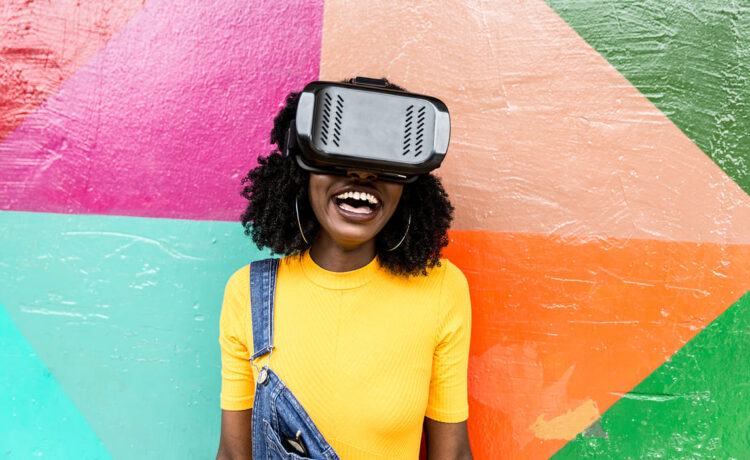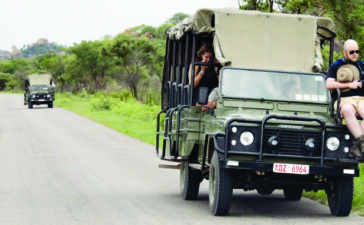How do we define the metaverse? How will it impact our reality in the travel space? The metaverse merges virtual, augmented, and physical reality, blurring the lines between digital and physical worlds. Gamers are experiencing this early version of the metaverse not only for playing, but also for socializing, shopping, and living unique experiences. For example, World of Warcraft is a persistent virtual world where players can buy and sell goods. Similarly, Fortnite has virtual experiences like concerts and even an interactive Martin Luther King Museum.
We also see use cases expanding, covering mainly e-commerce, fashion, education, and manufacturing. Companies in these domains are using the metaverse for branding and marketing purposes, for learning and development of employees and for communication and collaboration.
As it stands, the metaverse is a collection of different interactive worlds that can be used to explore, create, collaborate, and buy different experiences. Just like the adolescence of the internet in the 90s, it may take a while for the metaverse to take shape, but its key features are already here.
Every year, US$54 billion is spent on virtual goods – that’s double the amount spent buying music. A consumer study of 3,000 people across the world found that 86% had already purchased a virtual good, with digital fashion at the forefront.
And this is just the beginning. As virtual headsets become more accessible and the metaverse emerges from its adolescence into adulthood—sometime between 2026 and 2030—the early adopters are set to profit the most. McKinsey says that by 2030, the value of the metaverse could reach US$5 trillion.
There is real money here, and all the big tech companies are in on the action. Like the rush to build websites in the late ‘90s and early 2000s, we are now seeing companies and brands rushing to build stores and representations of their products in the metaverse to get in on the action.
How the metaverse will impact travel
The metaverse could complement, replace and /or open new ways to enjoy the travel experience.
In the short-term, the metaverse is expected to bring an enriched inspiration with virtual tours. For example, some companies are already offering virtual tours in VR, giving travelers the possibility to book in the “real world” if they loved what they saw in the virtual tour. Thomas Cook’s VR excursions of Manhattan, for example, offer store visitors a five-minute “taster” of the city; it helped the company increase bookings by 190%.
As we progress on the immersion side, we will start having more credible experiences in the metaverse and we can expect to have an explosion of activities and virtual travel expansion. For instance, in a recent survey conducted by McKinsey on metaverse adoption (more than 3,400 consumers and executives participating), 62% of respondents stated that they were “excited” or “very excited” about the possibility of travel in the metaverse, especially the ability to visit “places I can’t physically go”. Maybe a real-life trip to Egypt could be prompted by a virtual trip through time, to the apex of the ancient Egyptian civilization? Or why not book a trip to the moon? Unlimited by our normal concepts of time and space, we really can go anywhere our minds can dream up.
As adoption increases, the metaverse could become a new distribution channel offering physical trips or mixed trips, with more personalized inspiration and search, thanks to real-time information and enriched data. Travel agents could interact with potential travelers in the metaverse in real-time and have direct access to their feedback: like the captain at the helm of a ship, they could take travelers to different cities or destinations in that moment, to inspire them to plan and book the entire real-life trip in the metaverse.
On the business travel side, some trips could be replaced by enhanced collaboration tools, a transition that has been accelerated by COVID. The metaverse could host new kinds of virtual/hybrid meetings and events.
How are travel companies approaching the metaverse?
Right now, companies are using the metaverse mostly for brand awareness and retail. For example, Millennium Hotels has created a virtual hotel in the metaverse, ‘Decentraland’; Vueling will open a new sales channel in the metaverse, ‘Next Earth’; and Qatar is proposing a virtual representation of its different cabins.
Amadeus is already working with partners and customers to explore the full value that the metaverse can bring to enhance the travel experience.
Amadeus have launched a Search & Inspire Co-Innovation project with Microsoft to explore how user data and conversational AI can offer personalized travel inspiration to users. Amadeus are working at the Microsoft VR Studio in London, using Microsoft AltSpaceVR, to visually demonstrate what search & inspire could look like in the metaverse.











